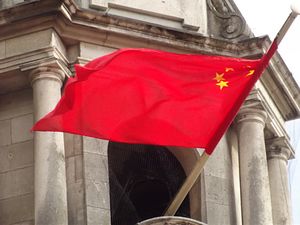For a long time scholars and pundits have debating whether or not China has a clear grand strategy. Most believe the answer is “No,” mainly because the Chinese government has never clearly articulated a coherent version of grand strategic thinking in front of the world. Now that has changed.
Chinese President Xi Jinping, in a political report at the most important political event for China in this century, the 19th Party Congress, clearly laid out a new grand strategy for China in the decades to come. Scholars around the world will need to study Xi’s speech for many years because in it there exists a coherent story about what China is and how China interacts with the world. Three main features can be found in China’s new grand strategy.
First, Xi’s vision is new. This is particularly important because the new approach is in huge contrast with the old one, which is essentially a conservative one advocated by former leader Deng Xiaoping in the early 1990s, famously understood as ‘hide the light, bide the time’ strategy. That ‘hide and bide’ strategy had served China very well over the last three decades or so, but like everything else, a strategy also needs to adapt to changing times. If there is a single term in Xi’s political report that deserves our special attention, it is the “new era” term. Following a holistic framework in Chinese politics, an “era” is of greatest significance as it determines all other important tasks. A new era would then determine the new “social contradiction,” then the new “task” or “goal,” then the new “method” or “strategy,” and so on.
Second, Xi’s vision is grand. By definition grand strategy differs from other strategies, such as national security strategy, in its scale. A grand strategy is about a country’s overall goal with a long term perspective. China has always been known for its ability to think in the long-term and think strategically. In Xi’s report, this new strategy will guide China’s through 2050, by which time China should have completed its final goal of becoming a socialist superpower — “leading world power” in Chinese terms.
Third, Xi’s vision is a strategy. A strategy should be more than a few vague ideas and guidelines. Indeed, China has already put forward a two-step strategy toward ultimately fulfilling its grand goal. Two important dates should be kept in mind: the year 2035 and 2050. First, by 2020, China should become an all-round prosperous society, and then use 15 years to complete a basic socialist modernization project. After that, China will use another 15 years to truly become a “leading world power,” and a strong and wealthy socialist modern power. This two-step plan is as specific as it can get when it comes to grand strategy, which usually is vague simply because of its scope. Moreover, this strategy has already been written into the new Party Constitution, which essentially guarantees that all future Chinese leaders and governments will need to stick to this strategy.
Obviously, the most important question for the West and the U.S.-led international order is this: how will China define herself and the relationship between China and the world? The answer to this question will have huge implications for future international cooperation and conflict, and even peace and war. Of course, there is no easy answer to this huge question just yet, but a few signs suggest some preliminary answers. For one thing, Xi Jinping stressed very much that China would continue to be open to the outside world, meaning that it would pursue more integration with the current international order. After all, China has benefited tremendously from the current international order since 1978, and why should it look to upend it now?
On the other hand, as China continues to grow and become more powerful, a more confident China will emerge on the global stage. This is not limited to economic and military realms. It means that China’s cultural power and ideological power will also increase, suggesting a more attractive ‘Chinese solution’ or ‘Chinese model’ for common problems facing mankind. Without cultural and ideological power, China would only be a partial global power.
Never before has China laid out such an ambitious and detailed strategy over a scope of several decades to come. Considering what is going on in other parts of the world, we might indeed be witnessing the emergence of a new global order. The West should be fully prepared to understand China’s new grand strategy, and hopefully come up with its own grand strategy.

































